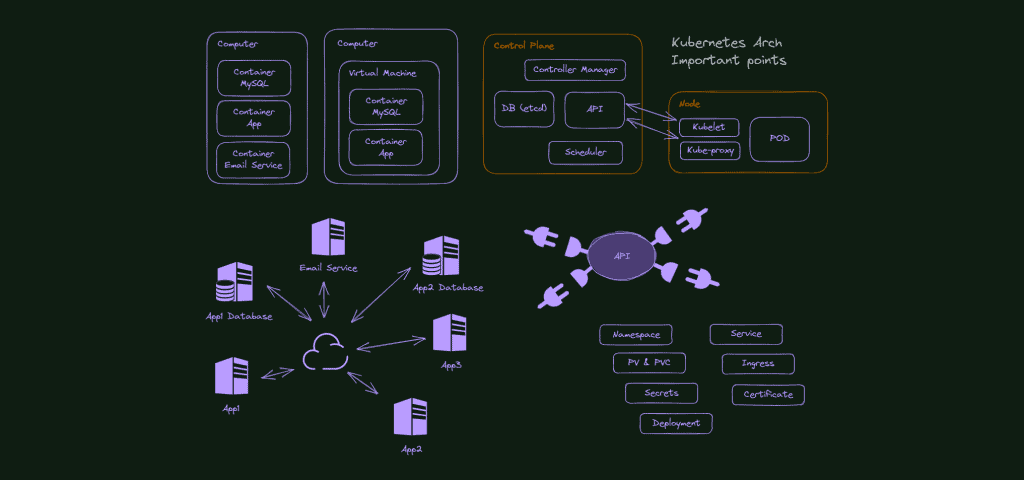Table of Contents

Introduction
Kubernetes, an open-source container orchestration platform, has become a fundamental tool in modern cloud-native development. As organizations increasingly adopt Kubernetes for managing and scaling containerized applications, many individuals wonder about the difficulty involved in learning this technology. In this article, we will explore Kubernetes, the learning curve it presents, the complexity and challenges associated with it, and the benefits of obtaining Kubernetes Certification.
Understanding Kubernetes
Kubernetes is designed to automate the deployment, scaling, and management of containerized applications. It provides a robust framework for handling container orchestration, load balancing, service discovery, and more. With Kubernetes, developers can efficiently manage complex application architectures, achieve high availability, and scale applications seamlessly.
Learning Curve of Kubernetes
Learning Kubernetes involves acquiring knowledge about its architecture, concepts, and components. The learning curve can vary depending on an individual’s background and prior experience with containerization and cloud technologies. While Kubernetes may initially appear complex, it offers a well-defined learning path and resources for gaining proficiency.
Complexity and Challenges
Kubernetes introduces several complexities and challenges that can make the learning process more involved:
Abstraction Layers
Kubernetes operates through multiple layers of abstraction, such as pods, services, deployments, and namespaces. Understanding these abstractions and how they interact can be initially overwhelming.
Configuration and YAML Files
Kubernetes relies heavily on configuration files written in YAML. Learning to write and manage these files effectively is essential for defining application deployments, networking, and other resources.
Networking and Service Discovery
Networking in Kubernetes involves concepts such as services, load balancing, and ingress controllers. Understanding and configuring networking aspects can be complex, especially when dealing with multi-container deployments.
Cluster Management
Operating and managing a Kubernetes cluster involves tasks like setting up nodes, managing resources, and ensuring high availability. These tasks require familiarity with cluster administration and monitoring.
Scalability and Fault Tolerance
Kubernetes enables horizontal scaling and fault tolerance. Learning to leverage these capabilities effectively involves understanding resource allocation, scaling policies, and failure handling.
Kubernetes Certification
Kubernetes certification programs offer a structured approach to learning and validating Kubernetes skills. The most well-known certification is the Certified Kubernetes Administrator (CKA) provided by the Cloud Native Computing Foundation (CNCF). This certification validates the knowledge and skills required to design, deploy, configure, and manage Kubernetes clusters.
Benefits of Kubernetes Certification
Obtaining Kubernetes certification provides several benefits for individuals and organizations:
Validation of Expertise
Kubernetes certification serves as proof of an individual’s expertise and competence in working with Kubernetes. It demonstrates a deep understanding of Kubernetes architecture, concepts, and best practices.
Career Advancement
Certification enhances career prospects in the rapidly growing field of cloud-native development. Kubernetes skills are in high demand, and certified professionals often enjoy better job opportunities and increased remuneration.
Confidence and Credibility
Certification instills confidence in professionals, enabling them to take on complex Kubernetes projects and challenges with assurance. It also adds credibility to their profile and distinguishes them as qualified Kubernetes practitioners.
Access to Community and Resources
Certified Kubernetes professionals gain access to a vibrant community of experts and peers. This community facilitates knowledge sharing, networking, and collaboration, providing access to valuable resources, discussions, and ongoing learning opportunities.
Conclusion
Learning Kubernetes may present challenges due to its complex nature and the need to understand its various components, abstractions, and networking concepts. However, with a structured learning path and dedication, individuals can acquire proficiency in Kubernetes. Obtaining Kubernetes certification further validates one’s expertise and opens up new career opportunities. As organizations continue to adopt Kubernetes for container orchestration, the demand for skilled professionals with Kubernetes knowledge will continue to rise.




